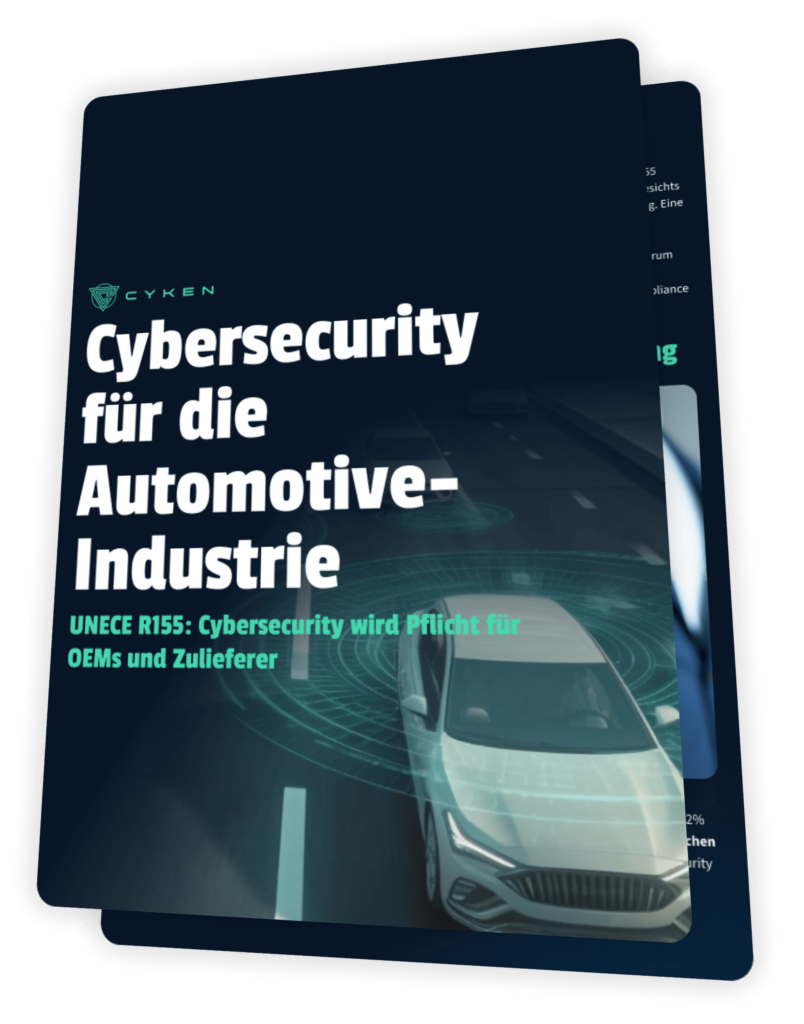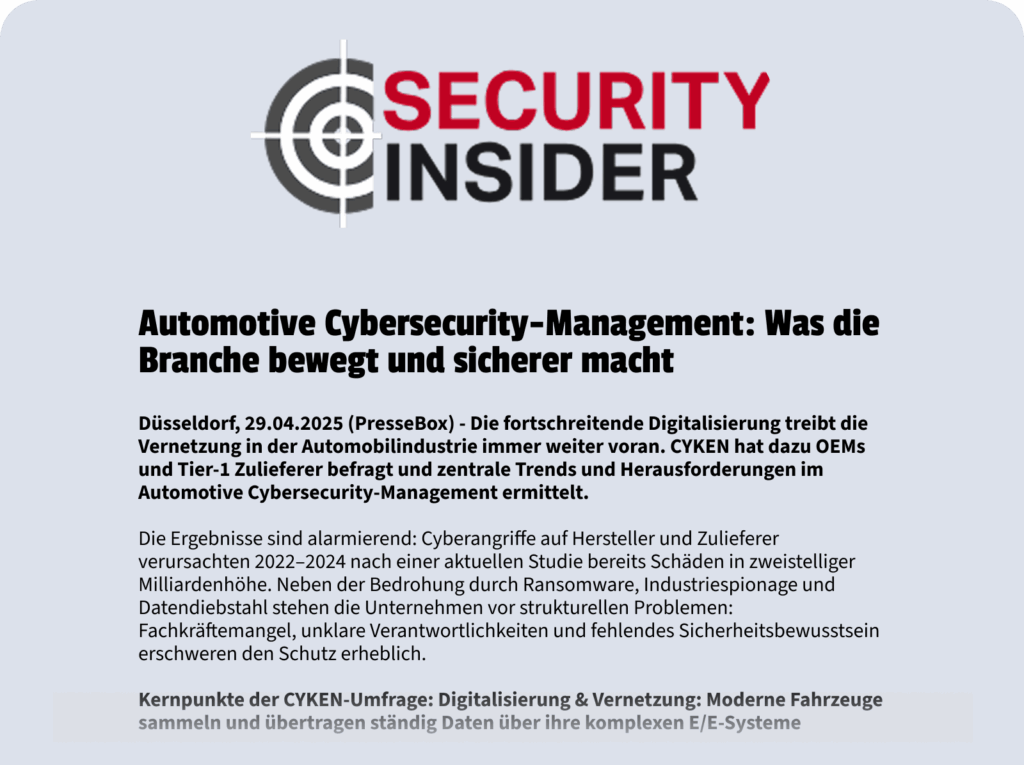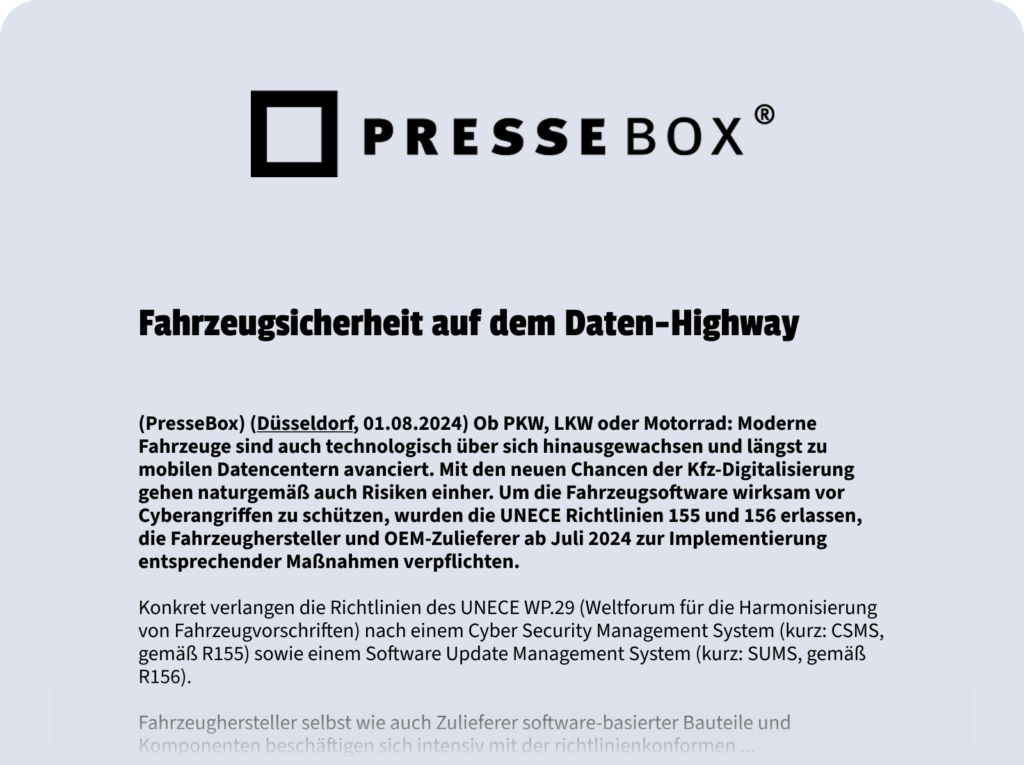Imagine this: A hacker takes control of your vehicle while you’re driving on the highway. A nightmare? Absolutely. But with the growing connectivity of modern vehicles, this scenario becomes increasingly realistic — unless appropriate security measures are in place. That’s exactly where the UNECE R155 regulation comes in — and it’s revolutionizing the automotive industry.
What does UNECE R155 mean for your vehicles?
UNECE R155 is a landmark regulation by the United Nations that defines comprehensive cybersecurity requirements for vehicles for the first time. Since July 2024, it applies to all new vehicle models — and the impact is significant.
The core requirement: Every vehicle manufacturer must implement a Cybersecurity Management System (CSMS) that covers the entire lifecycle of a vehicle — from development to production to usage.
The 5 key requirements of UNECE R155
The regulation sets out specific demands that you cannot ignore:
- Comprehensive risk management: Systematically identify and assess all potential cybersecurity risks to your vehicles.
- Security by Design: Security must be integrated into the vehicle architecture from the start — not as an afterthought.
- Continuous monitoring: Implement systems to detect and defend against cyberattacks throughout the entire vehicle lifecycle.
- Secure software updates: Ensure software updates can be securely transferred and installed.
- Documentation and proof: Maintain detailed records of all cybersecurity measures and their effectiveness.
The impact on the entire supply chain
UNECE R155 does not only affect vehicle manufacturers but the entire supply chain.
Suppliers must prove that their components meet the cybersecurity requirements.
This leads to a fundamental realignment of the industry:
- Increased transparency: Software Bill of Materials (SBOMs) become the standard to document all software components.
- New cooperation models: Manufacturers and suppliers must work more closely to close security gaps.
- Changed business models: Cybersecurity becomes a competitive advantage and a differentiator.
Why you need to act now
Time is running out. Some manufacturers have already discontinued vehicle models because they couldn’t meet UNECE R155 requirements. The consequences of non-compliance are severe:
- No type approval for new vehicle models
- Significant reputational damage
- Potential liability risks in the event of security incidents
- Competitive disadvantages compared to compliant manufacturers
Conclusion: Recognizing cybersecurity as an opportunity
UNECE R155 may initially appear as a regulatory hurdle, but it also offers enormous opportunities. Companies that proactively address cybersecurity can build trust with customers and position themselves as leaders in this increasingly important field.
The future of mobility is connected — and only robust cybersecurity measures can make that future truly secure. Act now, before it’s too late.
Want to know how to efficiently implement UNECE R155 requirements?
Contact us for comprehensive consulting and learn how we can support you on the path to compliance.







